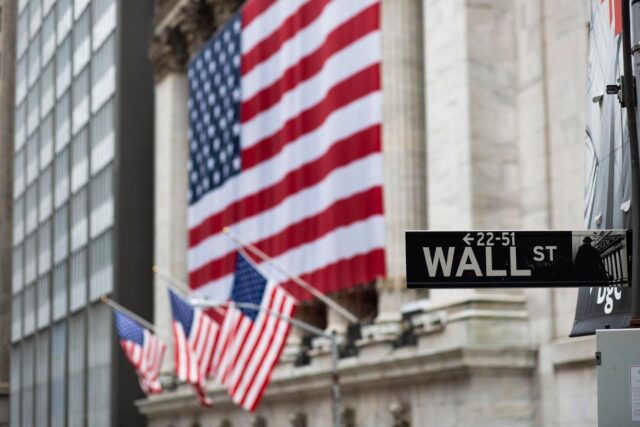Wall Street seems to have lost its former enthusiasm for China investing. For the first time in a very long time, portfolio flows show net withdrawals from Chinese stocks and bonds. Quite aside from Washingtons growing hostility toward China trade and economics, American investors have their own reasons for turning away from China. They worry, for instance, over the burden on Chinese finance imposed by the large and growing overhang of questionable debt. They have become wary of China’s general economic slowdown as well as recent news that infrastructure spending has failed to have its once impressive effectiveness. They wonder, not unreasonably, whether this picture signals still more fundamental Chinese economic problems.
The data are compelling. Beijing’s State Administration on Foreign Exchange reports that not too long ago, high levels of American portfolio investments into Chinese stocks and bonds were the norm but not there are dramatic outflows. In 2018, for instance, even as President Donald Trump began to impose punitive tariffs on imports of Chinese goods, American investors purchased a $17 billion net increase in Chinese stocks and bonds. The net flow rose to $36 billion in 2020, despite the pandemic. The flow held up in 2021, which saw a net inflow that almost topped $20 billion. But in 2022 net portfolio investment all but stopped, and this year through October, the most recent period for which data are available, has seen net outflows to the tune of some $31 billion.
The same pattern emerges from statistics on private investment. Over the years American investor enthusiasm about China fostered the growth of several private equity funds that specialize in Chinese investments. According to Prequin, a private consultant that tracks flows of money into alternative investments, China-oriented private equity funds attracted as much as $140 billion as recently as 2019, with most of the funds coming from individuals and pension funds. By 2021, that figure had shrunk to $93 billion, and in 2023 through October, those inflows has shrunk to a mere $4 billion.
If Wall Street is mostly moving for its own reasons, Washington has no doubt contributed to this investor rethink. Since 2022, the administration has conducted what can only be described as a trade war with China. President Biden, despite his campaign rhetoric, has retained the Trump tariffs on Chinese goods that went into effect in 2018 and 2019. The White House has forbidden the sale of advanced semiconductors to China and limited the ability of Americans to invest in Chinese technology. Most recently, Washington has made it clear that the tax credits for electric vehicles embodied in the 2022 Inflation Reduction Act will not apply to products that are made by Chinese companies or have a significant proportion of Chinese parts, including the batteries. Such strenuous government efforts could not help but affect investor thinking. But American business and American investors have concerns about China that have little to do with Washington.
Top worry is the huge and growing overhang of questionable debt in China. Many U.S.-based investors have exposure to the debts of Chinese real estate developers, almost all of whom are threatening default. The losses and potential losses involved naturally have made these investors and others wary of sending more funds to China. Still more worrying is the burden this bad debt places on all Chinese finance. There are fears that even firms that have no direct exposure to the debts of developers will suffer losses from borrowers that do have such expose. And then there is the overhang of local government debt in China. Few, if any Americans have direct exposure to this debt, but they worry that any Chinese investment could suffer if payments on this debt are suspended or delayed. On an even more general level, American investors worry that the weight of bad debt, whatever the source, will limit the ability of Chinese finance to support new projects that might promote economic growth and hence returns on all investments in China.
Apart from this prospect of failures is the general slowdown in the pace of chinese economic growth. Even optimists hesitate in the face of this news. After all, the original attraction of investments into Chinese stocks and bonds was how the rapid rate of growth promised attractive returns. Of particular concern is how recent efforts at economic stimulus through infrastructure spending have not had the strong positive effects they once did. Though few in the investment community have offered specific explanations of these failures, investors nonetheless and understandably worry that they might signal a more fundamental and unattractive turn in the nature of Chinese economics. That concern alone, even without specifics, is enough to impel investors to look elsewhere.
In the face of all these considerations, not to mention that President Xi Jinping’s near obsession with national security has made nearly impossible the data collection essential to investment decisions, it is easy to see why Wall Street has lost its once-great enthusiasm about Chinese investments. What is worrisome from a Chinese perspective is how American investor worries can take on the character of a self-fulfilling prophesy. China needs outside investment —to help bolster its own weak financial situation and to bring technological and business expertise into the country. Wall Street’s concerns, by denying China that needed input, can deny China these needs and so ensure that recovery will be weaker than otherwise and as weak as investors fear.
Follow me on Twitter.




